|
This year, students responded to the prompt below. Some wrote an as-told-to account in the voice of the person they interviewed. Others wrote it from their own perspective.
"Choose someone you love, respect, or are just interested in learning more about, and ask him or her to tell you a story. Specifically, your question for them is this: Tell me about a moment when a place made a big impression on you, when it did something to shape the person you are today." By Donovan Fortune So far we've managed to not lose anyone. I mean people have been sent home, but no one has been KIA, and hopefully no one will be. When I enlisted, I never thought the war would be like this. All the propaganda that I've heard before signing up made it sound like a great adventure, like it was our time to go on a great crusade like our fathers before us and their fathers before them. We've been told stories about how they rode in on boats into Normandy and charged over the trenches in the Somme. They told us that these were glorious, that these were the greatest moments in there lives. But what they didn't tell us was the actual stories, the actual events that took place, the actual things that they saw. What they didn't tell us was that when they got off the boats, they were mowed down like they were paper, that the machine guns in the bunkers cut through them like a hot knife through butter. What they didn’t tell you is how the war affected them. What it did to them, that's what they didn’t tell you. So far we’ve done patrol after patrol, march after march, meet-and-greet after meet, and so far nothing has happened. This is all we’ve ever done since we got here is walk into a village, meet the locals, and talk to the village elder. The few times we got engaged it was one or two guys, five at the most. The first engagement that we ever got into we were just walking along a dirt path on our way to a village deep in the jungle when all of a sudden I heard a crack. Then it sounded like really loud, like an angry mosquito went hissing past my head. I don’t remember much, but it happened so fast that it was all a blur. I remember our point man falling backwards and him hitting the ground. As soon as he hit the ground the forest in front of us lit up like a Christmas tree. Instinctively we all dove for the ground and started to return fire. The corpsman crawled up faster than I ever knew anyone could crawl before. He reached the point man, who at this point was rolling from side to side clutching his chest. The corpsman started to pull him back behind a fallen tree that at this point had a machine gun laying down suppressing fire on the forest. Slowly the fire from the forest had started to die down, eventually becoming silent. The corpsman looked at the point man and started chuckling. We all looked at him confused, and he then said, “It’s okay, man. It went straight through. It went straight through.” When it came time for us to leave, many of the guys I remembered from basic were not with me. They had either been sent home early or transferred out. I was lucky in that my unit only had five KIA total in our tour of duty, and none of them had been from my platoon. I get asked if it was worth it. I always give them the same answer. Was it worth it? No. Would I do it all over again? Yes. This always confuses them, and I even confuse myself with that answer. Even to this day I still don’t understand why I would. This year, students responded to the prompt below. Some wrote an as-told-to account in the voice of the person they interviewed. Others wrote it from their own perspective.
"Choose someone you love, respect, or are just interested in learning more about, and ask him or her to tell you a story. Specifically, your question for them is this: Tell me about a moment when a place made a big impression on you, when it did something to shape the person you are today." By Samira Jackson “Jail.” That was the answer my mother gave me when I asked her, “Has there ever been a place that made a strong impression on you or has shaped who you are today?” On October 13, 1998, when my mother was 33 years old, she was arrested for distribution of drugs. During this time, my mother had just moved to Harford County and was unfamiliar with her surroundings, which became a problem because she was unable to find a job and couldn’t buy food for her children. With the increase in stress and decrease in finances, my mother started to sell drugs to provide for my four older siblings. The day my mother was arrested, she was going to commit suicide, because she was addicted to drugs and could not stop no matter how hard she tried. Just before she was about to jump in front of an “18 wheeler”, an officer stopped her and asked “What’s wrong, Miss? Please tell me what’s wrong?” She begged and pleaded for help and in the process admitted to selling drugs. The officer decided to help my mother by listening to her and having her arrested. Before he arrested her, he destroyed all the drugs she had on her and spoke to a judge to help her get a reduced sentence. While in jail, my mother fell deeper into her faith and prayed to Allah for help and forgiveness. After learning about recovery programs, she constantly went to NA (Narcotics Anonymous) meetings and learned different methods that would help her stay clean. In July of 1999, my mother was released from prison and sent to a recovery house to further and strengthen her recovery. The next question I asked her was, “How did jail affect your parenting skills?” Her response to me was, “I was able to be fully conscious while raising my children, which allowed me to make the best decisions for you all.” During the birth of her sixth child (me), she was sober and clean the entire pregnancy, unlike with my other siblings. I am the first child she has raised from birth and up, drug-free. During my childhood, even with the stress of raising five children, she never wanted to use again and surrounded herself with sponsors and sponsees. While listening to her story, I could hear the despair in her voice, and I understood the loneliness and helplessness she felt. Her story reminded me of a time when I felt just as alone as she did and could relate. During my freshman year of high school (2015), I was learning to adjust to new shifts in my life, including school. My father had been arrested, my brother had left for college, I was getting low grades, and I was unsure of who I was as a person. I had been experiencing depression for the first time, and I didn’t know how to handle it or who to talk to about it, which led to a lot of poor choices. After noticing my behavior, my mother decided to get me a therapist for the fourth time. In September of that year, I began cutting myself on the wrist, but I switched to my thigh in order to hide it better. I would lay in bed almost every night and cry myself to sleep, or I would ball up during my showers and just cry for hours. Eventually, thoughts of suicide began to arise and I became afraid of myself. On November 18, 2015, I expressed my fears with my then therapist, Ms. Glover, and under the belief that I was a danger to myself, that night she had me admitted to the Child and Adolescent Psychiatric Inpatient Unit at Johns Hopkins Hospital. When I first got there, I remember feeling embarrassed and afraid of judgement, so I was slightly isolated. After the second day, I began to loosen up and participate more in the recovery groups. While being there I learned of multiple ways to help me cope with the harsh realities of life, and I learned how to be myself again. On November 26, 2015, Thanksgiving morning, I was released into the care of my mom, and I spent the next two nights with my family and friends. The real test came when I had to go back to school and get back into the daily routine of City. It was challenging to get back into the groove of things, and I never fully caught on until my junior year. But I did develop and mature as a person. As I reinserted myself back into my friend groups, I noticed that the main girls I hung out with were immature and toxic, which led to me distancing myself. Life had gotten better, and I was finally able to think clearly for once. Being in the hospital allowed me to see what went wrong and how to fix it. It also helped me evaluate who I was as a person and what type of person I wanted to be. While being in the hospital did not cure my depression, it was the stepping stone I needed to further evolve into the person I am now. If I hadn't gone into that hospital, I believe I would have transferred from City or killed myself. While conducting this interview and reflecting on my own past experiences, I realized that my mand I have more in common than I thought. Even though our stories are not 100 percent alike, we both faced barriers that forced us to hit rock bottom. But with help from others, we were able to persevere and grow. If that officer had not helped my mom get clean, she might not have been here to help me through my dark times and might not have even created me. We often look at each other as if we could never walk a mile in each other’s shoes. But in all actuality we have already done it. This year, students responded to the prompt below. Some wrote an as-told-to account in the voice of the person they interviewed. Others wrote it from their own perspective.
"Choose someone you love, respect, or are just interested in learning more about, and ask him or her to tell you a story. Specifically, your question for them is this: Tell me about a moment when a place made a big impression on you, when it did something to shape the person you are today." By Trinity James When you was a few months old, I got laid off from my job and started to sell drugs to make ends meet. I sold drugs because I was low on money during this time. I had to hustle to take care of you and your mom. I did this when I was younger, but I never got arrested for it. It’s like having an addiction, feeling like you can do anything and get away with it. I loved making fast money and having control over others. Your grandmother told me that hustling was going to eventually send me to prison, and it isn’t fair to your mother not knowing about me selling drugs. I told your mother about it, and she felt that it was best to keep you and her away from me for your safety. Gosh, I missed you all, but I was concentrating on getting “that money.” I started to make a lot of money! I was obsessed with my job. Unfortunately, I got caught and had to pay the price. I was in jail for a few months and eventually ended up going to prison for some years. While I was in jail, I used to write letters to you, your mother, my family and friends. Your mother showed me pictures and videos of you. Having the eyes of an angel, you was the prettiest baby I’ve ever seen. I missed your first words. I missed your first steps. Also, I missed your smile. I used to think what it was like if I only had listened to my mother and stopped my hustling ways. I will not take my freedom for granted anymore! Life in prison is different than being home. Getting up when told. Going to sleep when told and following the directions of the correctional officers then making sure that you are safe from other inmates trying to hurt or kill you! Good news! It’s time to be released. Going home tomorrow. I’m not going to miss this place. I’m now able to see how you have grow into a beautiful young lady. I missed you and your mother so much. Being away from your loved ones teaches you to appreciate the time we have together--that it’s special, to cherish it. I apologize for anything I’ve done to you in the past, and I promise not to leave you again. It’s truly a blessing to get up in the morning go to work and see that pretty smile on your face when you come in from school, knowing that I’ve been the best person I could have been today. his year, students responded to the prompt below. Some wrote an as-told-to account in the voice of the person they interviewed. Others wrote it from their own perspective.
"Choose someone you love, respect, or are just interested in learning more about, and ask him or her to tell you a story. Specifically, your question for them is this: Tell me about a moment when a place made a big impression on you, when it did something to shape the person you are today." By Ariel Hill It was what I had believed to be an ordinary day. I remember it was hot, the sun blazed down upon my skin, fiery. I knew I’d have a sun burn when I got in the house later that day. The only thing that kept my mood on the bright side was knowing that in a few hours I’d be at Six Flags with my brother, begging him to get on every roller coaster with me, even though I knew he wouldn’t. My brother, he’s afraid of heights. As much as he appears to be tough and fearless, he’s actually afraid to get on roller coasters. It was weird to think about, yet I wouldn’t judge him for it, nor would I pressure him into doing it with me because he’d never in a million years do that to me. My brother and I have been tight for as long as I can remember. Anytime you’d see him, I was bound to be following with quick steps behind him. We had bumps in the road but they never lasted, because I could never stay angry with him. I looked up to him. Everything I didn’t learn in school, I learned it from him. Any question that I had, he always had an answer. I could’ve did my own thing growing up. I could’ve hung with my own friends. However, they didn’t have his intellect, his maturity, or the bond that we shared. And when we got older, he was always there to cheer me up when I was sad. When my mom and I got into our daily arguments, he’d pick me up and take me to get food. He knows how much I love food. Little things like that meant the world to me. He meant the world to me, my brother. So as the hours passed, my phone chimed, and it made me jump from my daydream. I looked at my phone and it read “Brother”. It was a text from him that said “I'm outside.” My heart began to quicken from excitement. “Okay, I’ll be right out,” I replied, containing my childish excitement. As I ran down the marble stairs and out the big red door I spotted my brother’s silver Chevy. His girlfriend rested in the front seat, and of course my brother was the one driving. I jumped in the back seat of the car as I heard my brother greet me. “Hey Meeps,” he said. Meeps is what he called me. “Hey,” I replied. As we pulled off, I remembered that I had forgotten to get money for Six Flags. “We have to stop at dad’s,” I said to my brother. “Okay,” he replied. Though he didn’t have a problem with stopping, I still felt quite bad about making him go out of his way. When we were close to my Dad’s, I called him to let him know we’d be there soon. But as soon as the phone call ended, I saw we had missed a turn. As I looked up I saw my brother pulling over. I could see his worried expression in the mirror mixed with a little bit of nervousness and maybe fear. No. It couldn’t be fear. My brother? Scared? It was a weird thought. As I turned around to look out the back window I saw cop cars approaching the vehicle. My heart dropped. I’ve seen the videos on social media, on the news. But I never in a million years thought this would happen to my brother. Not my brother. “License and registration please,” said one officer as my brother rolled down his window. Another officer approached and looked inside to observe the car. My heartbeat sped up, and I could hear the blood pumping in my ears. My body felt heavy, and I couldn’t find the strength to move. My knees felt so weak and my palms were so sweaty. “Step out the car please,” I heard the officer say in the distance. This is what brought me back to reality. The cuffs they put around his wrist. bounding his two hands together. Just like that, his freedom was stripped from him. The ride home was silent. The rain poured down so heavy. Yet hours ago it had been such a perfect summer day. None of us spoke though. I don’t think any of us knew what to say. As I laid in bed, I couldn’t help but let the warm tears roll down my face. It was all my fault. If it wasn’t for me leaving the money home, he and his girlfriend would have been at Six Flags at that moment, enjoying their time together. If I had just stayed home, he wouldn’t be in this predicament. As if it would help, I banged my head against the wall repeatedly, trying to rid the thoughts from my head. I wish I could’ve switched places with him. As hard as he works, he shouldn't have had to fall victim to this corrupt system and their stereotypes. This whole experience made me lose hope in our government. Innocent men are thrown in jail, torn away from their families, and stripped of their freedom. This experience is the reason I chose to major in criminal justice, because everyone always talks about the problem but never tries to be the person who helps to resolve it. Change won’t come unless we go out and get it. So I plan to be the first step in the right direction. This year, students responded to the prompt below. Some wrote an as-told-to account in the voice of the person they interviewed. Others wrote it from their own perspective.
"Choose someone you love, respect, or are just interested in learning more about, and ask him or her to tell you a story. Specifically, your question for them is this: Tell me about a moment when a place made a big impression on you, when it did something to shape the person you are today." By Ramona Pyke When my mom was 25 years old, she volunteered for the Peace Corps in Chad, Africa where she ended up living for 2 years. Now 25 years old is kind of late to be a Peace Corps volunteer, seeing as most people go right out of college, but not for my mom. She wanted to travel and have adventures before she started her professional life, so she ended up travelling a ton in her twenties. “I didn’t want to be tied down with a full-time job, didn’t want to sit behind a desk. I just wanted to float”, she said. Her adventurous spirit ended up taking her to countries all over Europe and North Africa and eventually to the south of Chad, which changed her life. During her two years, she lived in small village called Bessada, which she described as a a village of 3,000 people populated by a tribal group noted for their kindness. “It always smelled like cooking smoke and earth and sweat, because it was 90 to 100 degrees most days.” By Peace Corps standards, it was considered a “hardship post” because it was one of the least developed countries in the world. “No cell phones, no electricity, no running water, and only a few paved roads up near the capital,” my mom said. Just like the other villagers, she lived in a small mud hut with a high, dome-shaped thatched roof, to let the heat rise. But it was absolutely beautiful. She described the roads as being the color of a “brick house in the rain,” and after walking on them, her feet would be covered in bright red dirt. Unlike New York City, where she lived before joining Peace Corps, there were no skyscrapers, no sidewalks, no “canyons of concrete.” Instead, there were miles of bright blue sky with white, fluffy clouds. The rainy season turned everything a lush green. The equatorial light made Chad “one of the most vivid places I’ve ever lived,” she said, “The reds were really red, the blues were really blue, the colors were so saturated compared to the pale color scheme in America.” But one day, all of a sudden, she finally understood what all those skyscrapers and concrete in America meant. She was a health volunteer in Chad, which meant she worked with the health team at the local clinic to talk to villagers about basic health care, vaccinations and safer sex. She lead clinics where the villagers told her about their biggest health concerns, which were usually very curable things. One day her health team was invited out to a remote village called Ta Wollo, which literally meant End of the Valley. Ta Wollo was one of the least developed villages in Chad, even more so than Besseda, so you can kind of get an idea of what it looked like. She walked 30 minutes down a sandy path to reach her destination. When my mom arrived at the mango tree where the clinic was gathering, she looked up at all the Ronier trees (a type of African palm tree), the spindly acacia bushes, and the bright blue sky. She said in that moment, she had never felt so far from home. The villagers, many of whom were children younger than me, gathered under a mango trees (which my mom said gave the best shade) to talk about hunger. It was a particularly poor village, located way off the main road, and there were not even mats to sit on. Everyone simply squatted in the dust while they talked. They passed an old coconut seed around which acted as a talking stick. The villagers and children were talking about their biggest health concerns, which was hunger. The feeling of knowing that there is absolutely nothing to eat is something that my mother had never felt. Just like many other people, my mom had always thought of food as an expectation, but in Ta Wollo, it was not an expectation at all. At that moment, my mom understood how lucky she was. She understood that things like skyscrapers and roads and phones and tunnels were amazing, not things to taken for granted. “They are ideas,” she said. “They started as ideas that people made happen.” In that moment, she understood that there at the end of the valley, the idea of New York or America seemed like a dream. She also understood in that moment that these children and children all over the world need people who they can rely on. These children in Ta Wollo couldn’t rely on where their next meal was coming from. This moment in her life helped her realize that she wanted to help kids, and that’s what she did. My mom decided at that moment that her adventures would end. Once she got back from Chad, in another 6 months she decided to use all of her advantages to make a contribution and help children. “I realized that many of the people in Ta Wollo would love the chance to see and do many of the things I always took for granted. I realized that I had unimaginable resources and opportunities in front of me.” Sure enough, right after my mom returned from her stay in Chad, she got her law degree. Now she could have used her degree to become a big corporate lawyer, but instead she used her degree to fight for abused children. She is the voice the voiceless. She chose this path because of her experience in Ta Wollo. Chad changed my mother’s life in two major ways. First, she came to the realization of just how privileged she was. Secondly, she clearly understood that children need someone reliable in their life to support them. She has the moment under the mango tree in Ta Wollo to thank for these life-altering realizations. his year, students responded to the prompt below. Some wrote an as-told-to account in the voice of the person they interviewed. Others wrote it from their own perspective.
"Choose someone you love, respect, or are just interested in learning more about, and ask him or her to tell you a story. Specifically, your question for them is this: Tell me about a moment when a place made a big impression on you, when it did something to shape the person you are today." By Richard Fadipe The person that I am going to be talking about is my older brother, Barnabas Fadipe. When you shape your life around a person, that means that they have a great meaning to your life. We are a foil of each other, but it might seem like we are a double. Barnabas Oluwasegun Fadipe, also known as Segun, born in Lagos Nigeria is a 24-year-old that is working himself up to become a professional photographer. He moved to the United States at the age of 12 in 2007. As the oldest son but third-born of my mother, he felt like he was the top male figure of the house. He felt this way because our father wasn’t in Nigeria when we was younger. He lived in the United States. So being the oldest boy, he felt like he had to improvise to being an adult even though he was still young. Segun went to Dumbarton Middle School, where he was able to adapt into the typical American life. Where life really hit him that his life was changing was when he became a student at Owings Mills High School. He was the youngest of his class, only being twelve years old as a freshman. Segun said that “I became a very understanding person because other students were doing things to be recognized, either by their friends or by college.” In high school he felt like he was both a dependent because he was a minor but also was independent because in high school he was able to choose the type of path he wanted his future to be like. In physical education he caught the attention of many sports coach because of the quickness of his feet. He wanted to become a soccer player but only because of the family situation of still trying to get comfortable with our new life, he wasn’t able to join the soccer team. But that didn’t stop him because he was still an outstanding student, who was highly loved by his teachers. That all changed when my parents decided to move across the country to the United States. Not knowing anything about the United States and being from a different country, I had to overcome stereotypes that people thought about Africa/African people and learn how to adapt in a world I did not know. Since I was from Africa, people started making assumptions based on the things that they heard. For example, people would always ask me to speak “African” even though that’s not a language. They would ask me to translate words said in English to my “country’s language” and always ask me to talk just to hear my accent. People would also think that African people were loud and uneducated when in reality, some are pretty quiet and really smart. Along with dealing with the stereotypes, I also had to learn new skills in order to adapt. One skill I had to learn was a new way to communicate. I would often use and say words that people around me would not understand and vice versa. Along with learning a new way to communicate, I also had to learn and get used to their education system. Unlike Segun, I adapted into the American society at an early age. My life really changed when I got into high school. I went to Northwestern High School. At Northwestern, I was one of the top student-athletes being a freshman. Many teachers loved me like their own child because I always made sure that I was a student first before being an athlete. I played football, basketball, and ran track. I fell in love with track because I felt like I was free. I transferred to Baltimore City College. City was a challenge because I had to adapt to the culture and the standards that are expected by many students. City taught me that as long as you “dream it, you can achieve it.” My brother and I are both foils of each other because we were at different stages when we first got in the United States. I really look up to my brother because he was the main male figure in my life. Even though we are interested in different things, supporting each other makes us even better and focused. He’s always been my biggest supporter of everything I do, especially in my athletic career, while I support him and his goals, including his photography. People might think that we are doubles because we are like twins just because we share the same birthday on October 17. We also look alike, but we always deny it because we do not see it. We are known to be around each other, always being called the “Naija Bros,” which I like a lot because that reminds me of home. Barnabas Oluwasegun is still that Nigerian boy who thinks he’s the top male figure in the household. |
AuthorLionel Foster Categories |
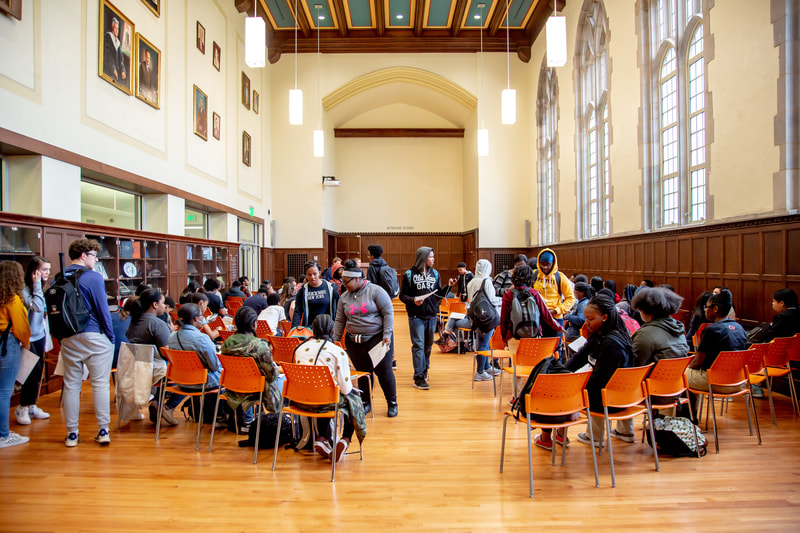
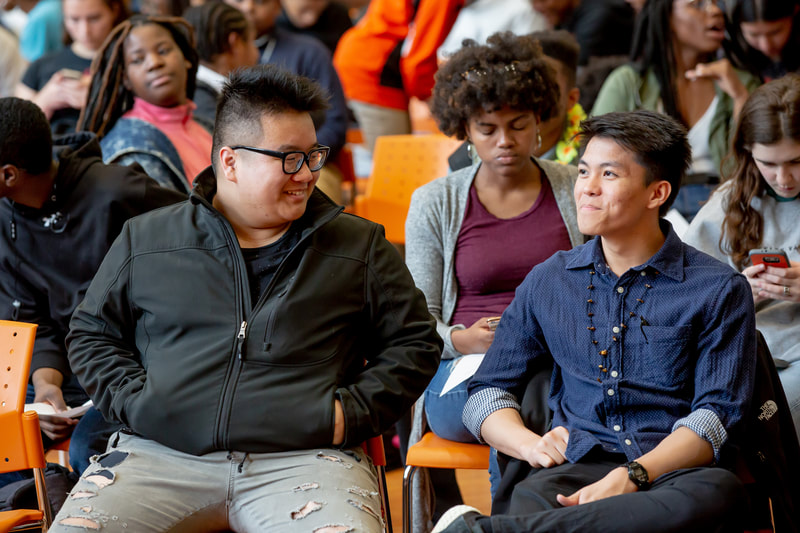
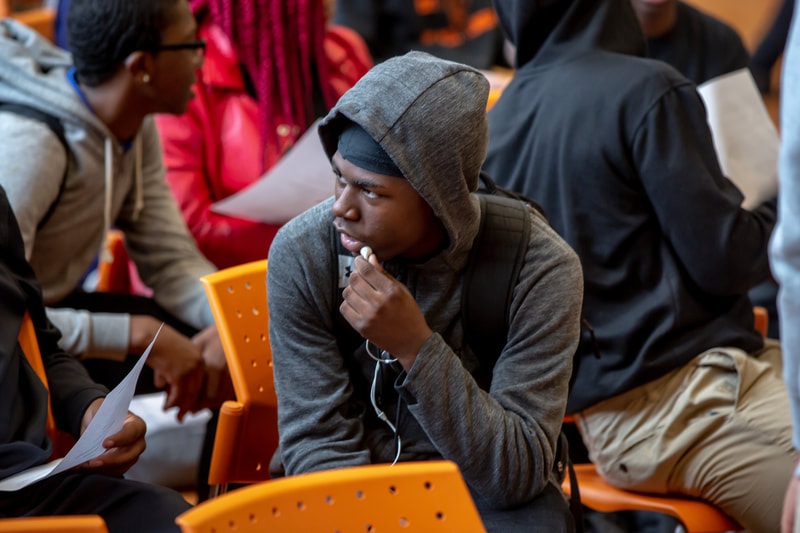
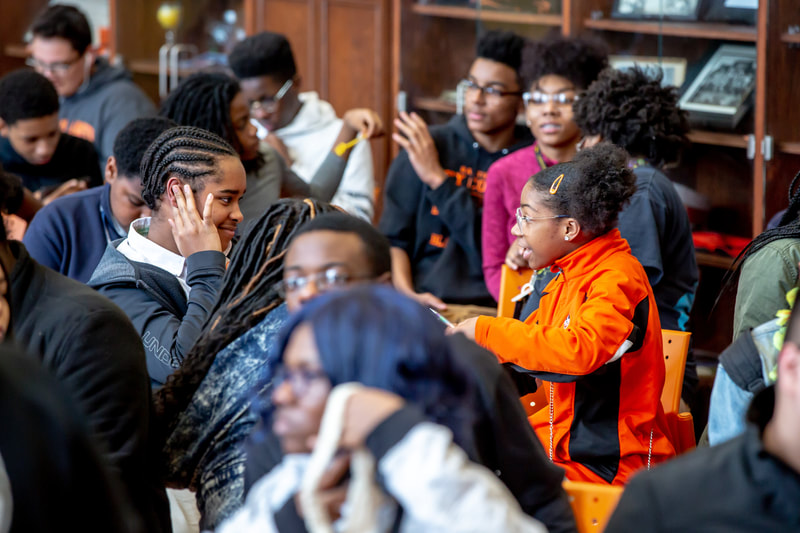
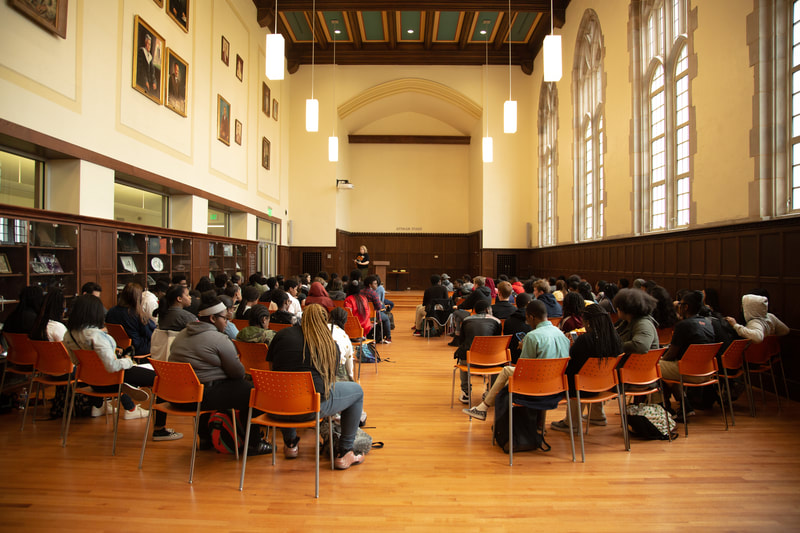
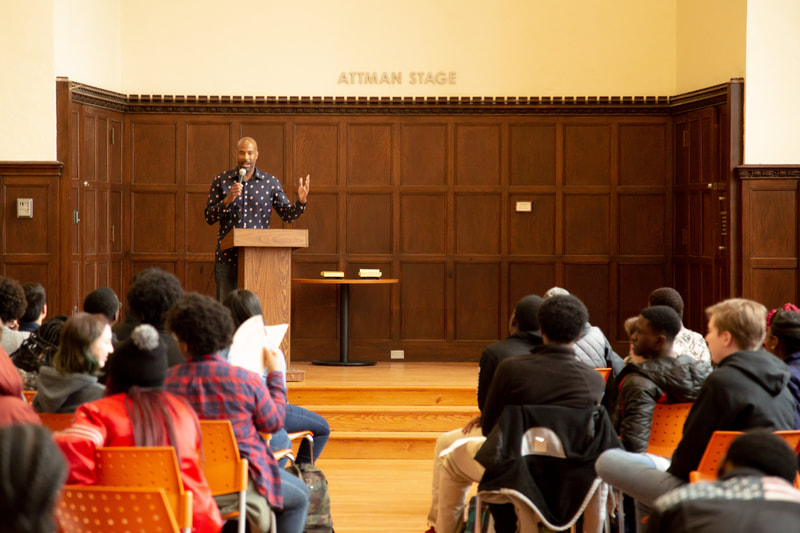
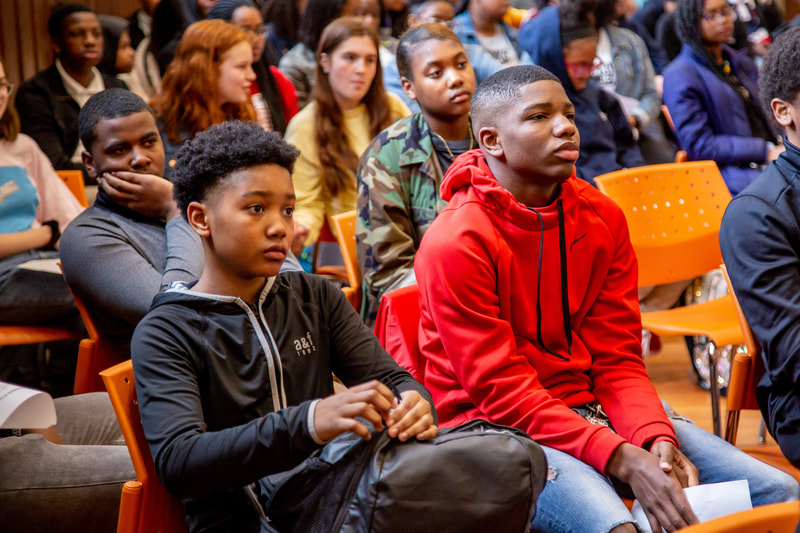
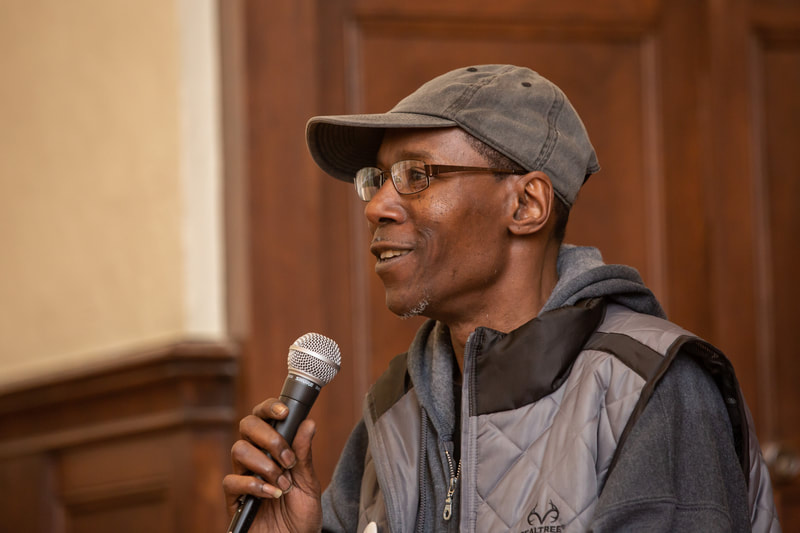
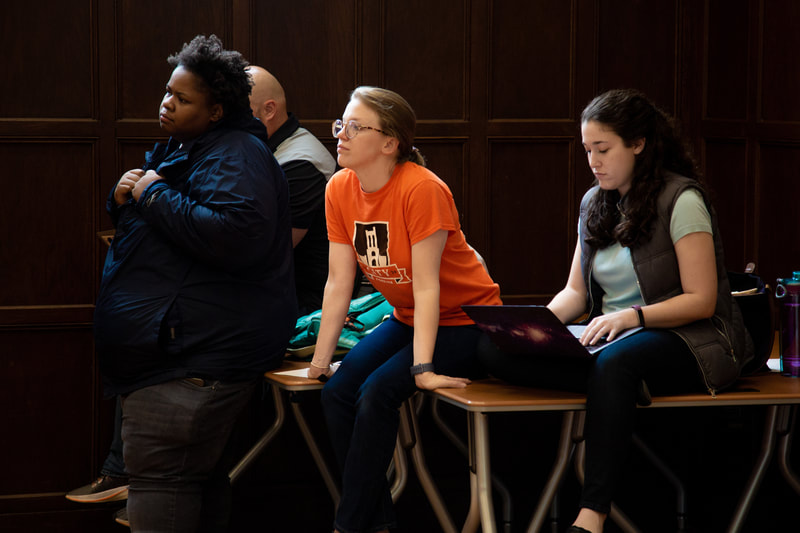
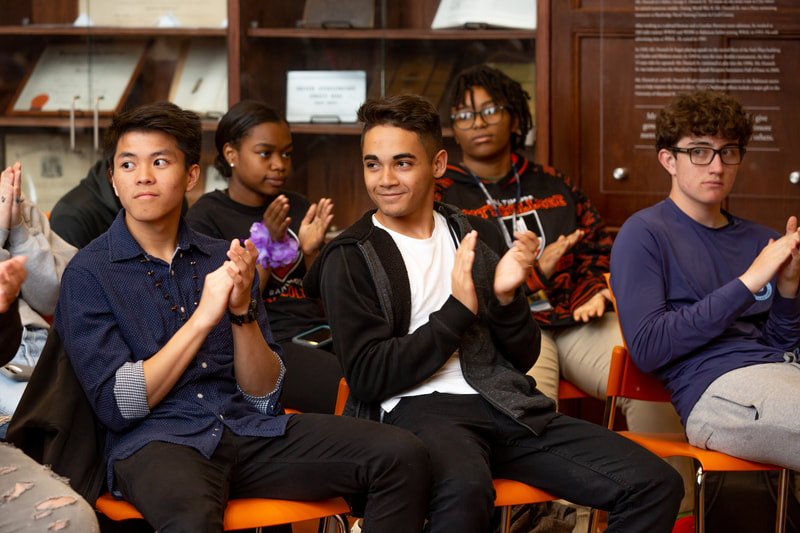
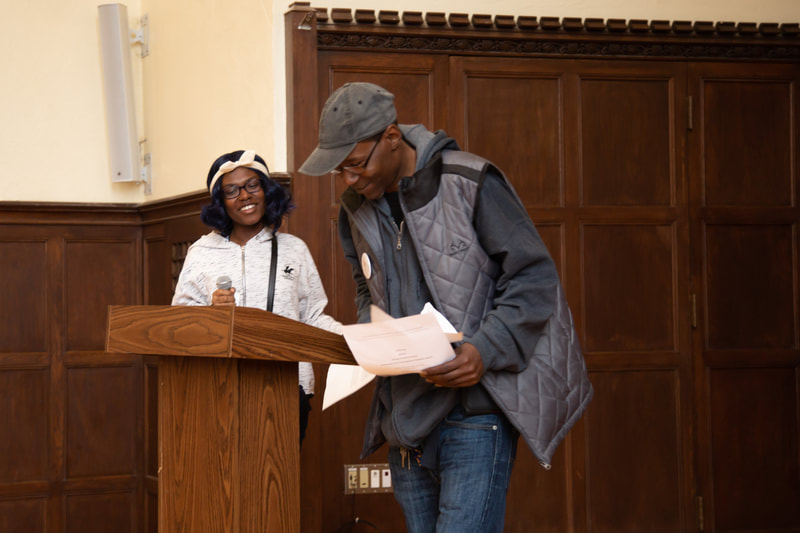
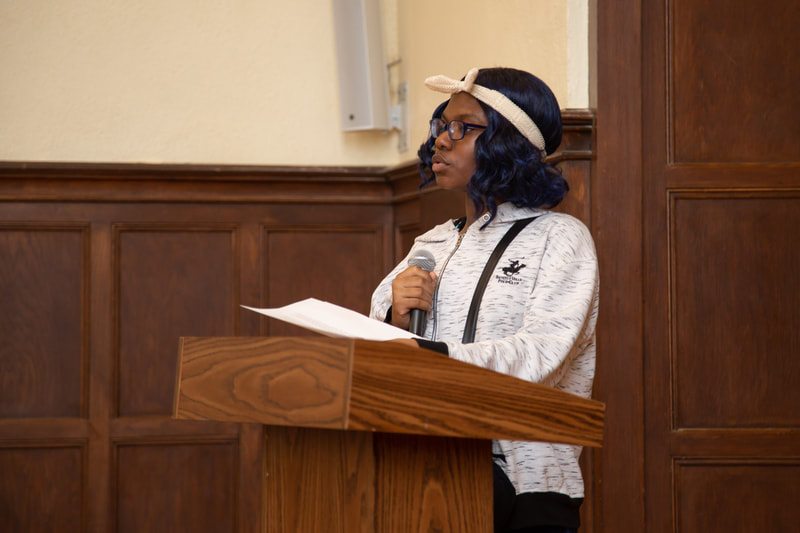
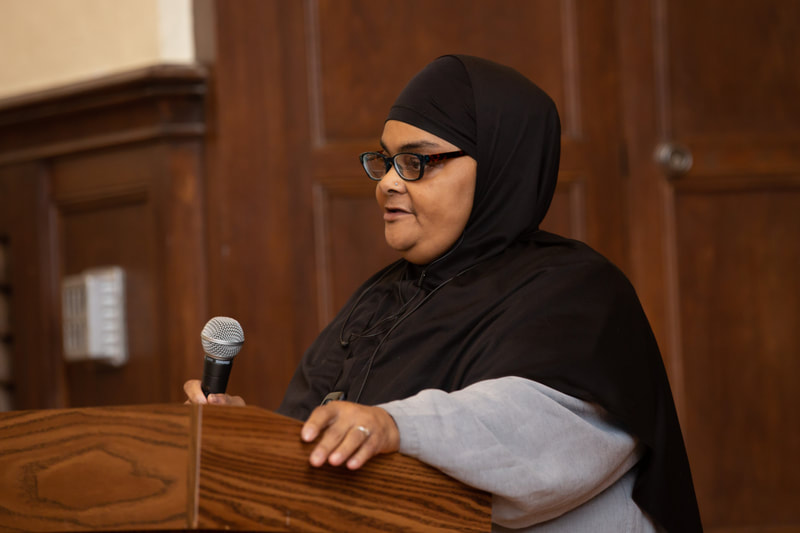
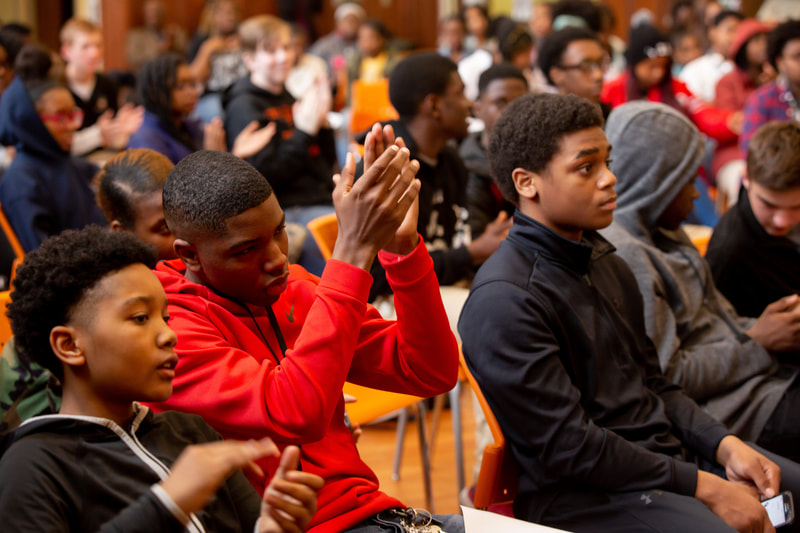
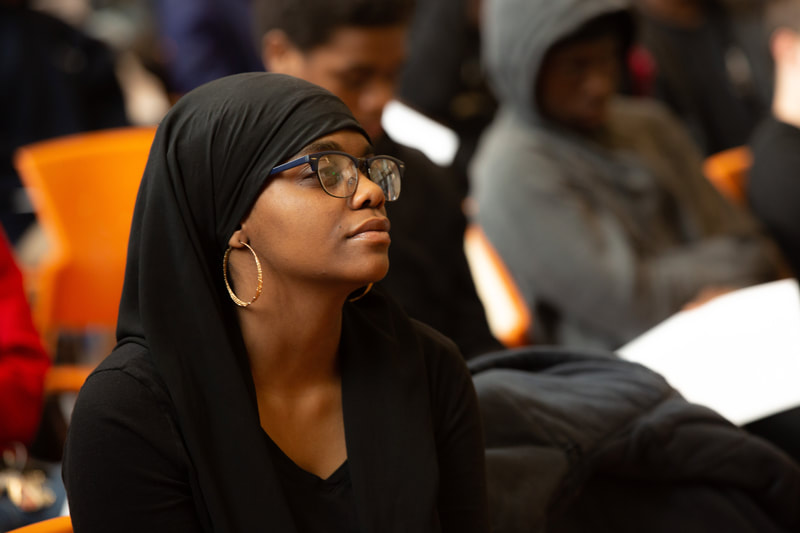
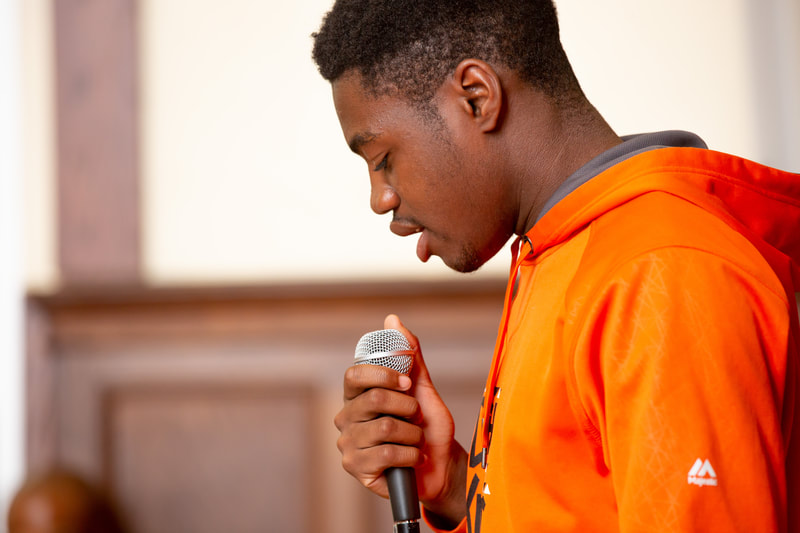
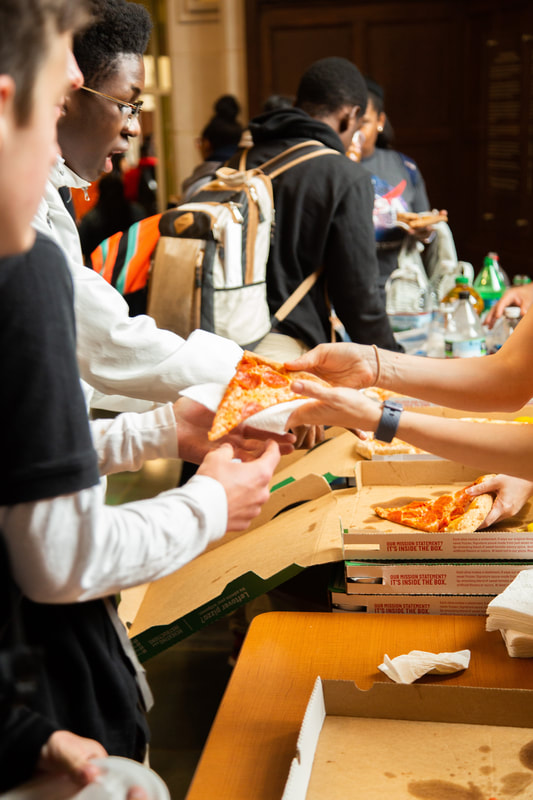
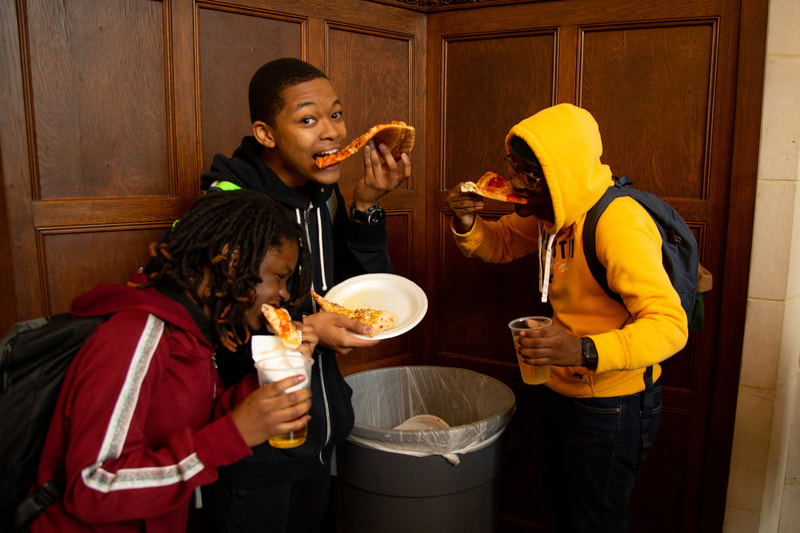
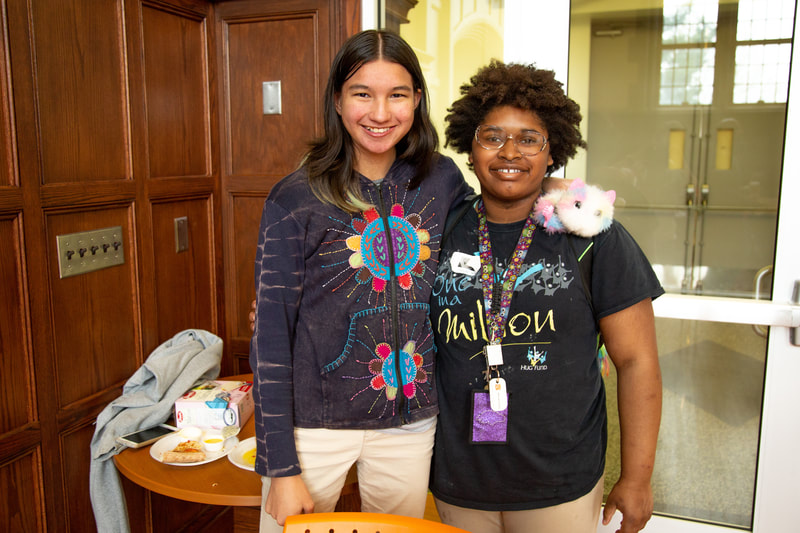
 RSS Feed
RSS Feed